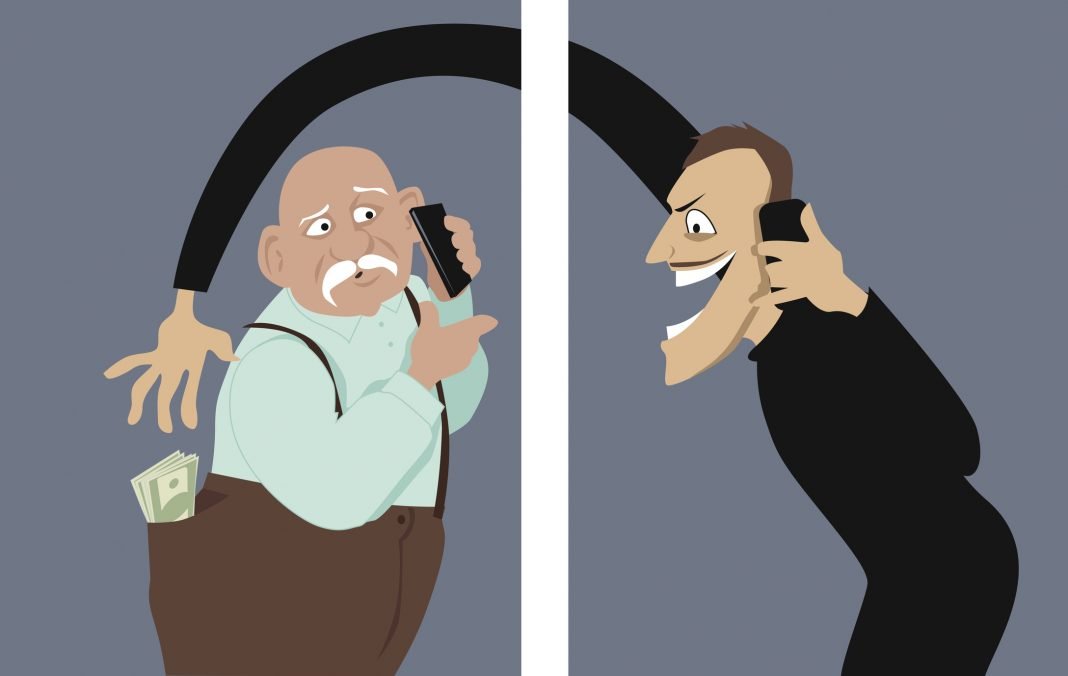 Does it feel like you’ve had more than your fair share of robocalls this year? If so, you’re not alone. Phone scammers were extra busy in 2016, making a record 10.2 billion robocalls to Americans, offering them everything from fake cruises and gift cards to opportunities to support bogus charities, according to a new report from Hiya, a company providing caller ID and call-blocker apps.
Does it feel like you’ve had more than your fair share of robocalls this year? If so, you’re not alone. Phone scammers were extra busy in 2016, making a record 10.2 billion robocalls to Americans, offering them everything from fake cruises and gift cards to opportunities to support bogus charities, according to a new report from Hiya, a company providing caller ID and call-blocker apps.
The same holds true for holiday scams, which saw an increase of more than 113% over last year, according to Hiya’s data.
“By taking advantage of the holiday ‘giving’ season, scam calls aimed at defrauding consumers are on the rise,” Jan Volzke, vice president of reputation data at Hiya, said in a prepared statement. “Whether preying on the spirit of gifting or the desire to get away after a rocky 2016, scammers are continuing to inundate the phone lines with fraud. We hope our data can educate consumers about these malicious and annoying calls so they can get back to enjoying their holiday season.”
These are the top phone scams for 2016, according to Hiya.
1. Telemarketer
Scammers are using telemarketing techniques to lure victims into giving out Social Security and credit card numbers, as well as bank account information.
2. Other Robocalls
Robocallers have been dodging regulations against their illegal activity by frequently changing or “spoofing” their caller ID so they appear to be calling from a local number.
3. Extortion/Kidnapping Scam
These scammers call random phone numbers and demand payment for the return of a “kidnapped” loved one.
4. IRS Scam
The caller pretends to be with the IRS and demands money for unpaid taxes or will trick the recipient into sharing private information. Remember, the IRS will never, ever call you about any taxes you owe.
5. Debt Collector
These scammers offer “solutions” to help victims pay off credit card and loan debt. Victims will give personal and financial information, enabling scammers to steal their identity and money.
6. Surveys
Scammers call victims offering prizes if they take a survey. However, before redeeming the prize, credit card information must be provided to cover “shipping and handling.”
7. Vacation Scams
Victims are notified that they have won a free vacation, but discover they have to pay a number of fees, provide a credit card number and are pressured to sign up for travel clubs to “earn” more trips.
8. Lucky Winner Scam
Scammers alert victims that they are the lucky winner of a contest or lottery. To redeem the prize, victims must provide personal and/or financial information.
9. Tech Support
Scammers pretend they are calling from a reputable tech agency (i.e. Microsoft or Dell) and claim that they have been notified of a virus on the victim’s computer. Scammers demand payment for services and third-party access to the computer to obtain private information.
10. Political Scams
During election season, scammers call victims requesting candidate donations, verifying voter registration, claiming they need to re-register to vote, or requesting that they take an election survey.
How to Help Avoid Being Scammed
To keep yourself safe from these and other scammers, the FBI recommends you exercise caution in how you respond to any call from someone you aren’t familiar with in order to help protect yourself from the damage of identity theft and fraud.
They urge you to:
Always be suspicious of unsolicited phone calls.
Never give money or personal information to someone with whom you don’t have ties and did not initiate contact.
Trust your instincts: If an unknown caller makes you uncomfortable or says things that don’t sound right, hang up.
If you think you or a loved one may have been a victim of a phone scam, it’s a good idea to check your financial accounts, credit reports and credit scores frequently for signs of fraud, like unauthorized transactions or unfamiliar entries. Be sure to immediately address these issues by notifying the authorities and even considering a credit freeze. Checking your bank activity for any problems is something you can do daily, but you can also get two free credit scores on Credit.com, updated every 14 days, to help you quickly spot some signs of identity theft, like that aforementioned sudden drop in scores. You can also get your free annual credit reports from AnnualCreditReport.com.
This article originally appeared on Credit.com and was written by Constance Brinkley-Badgett.










